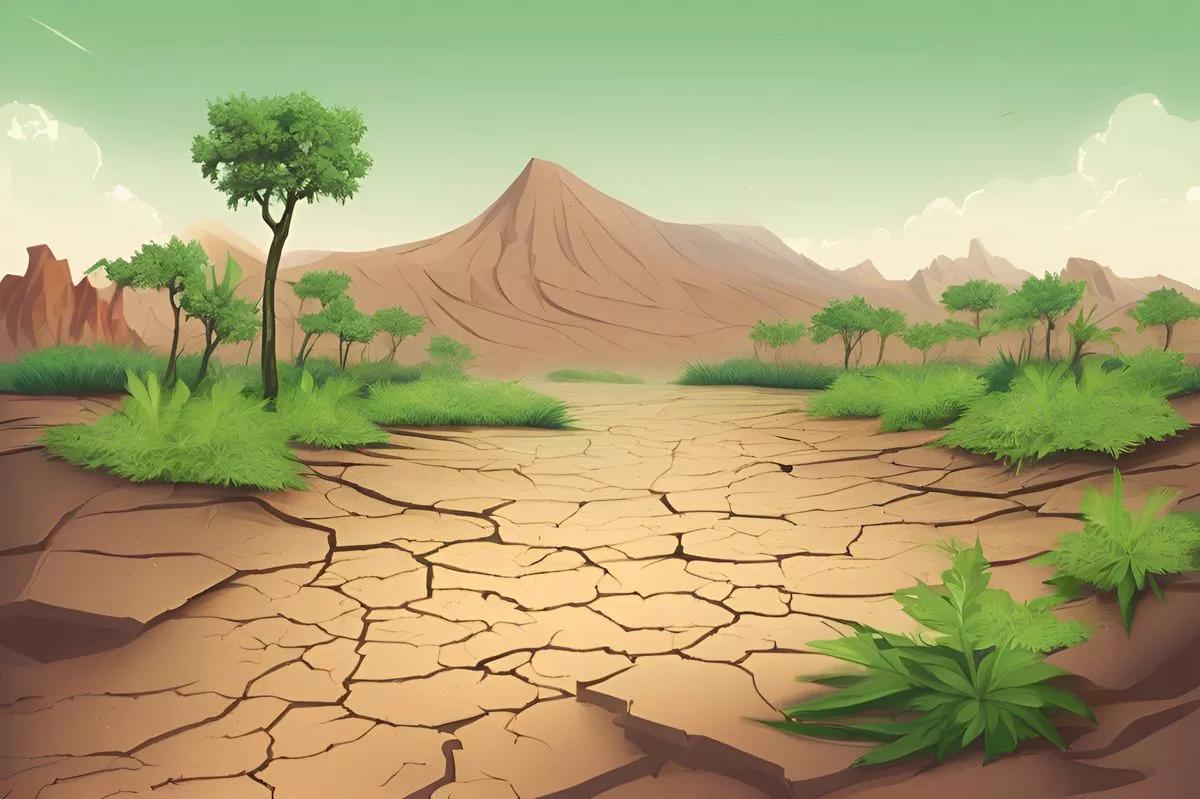South Africa is facing a water crisis due to factors such as population growth, climate change, and economic advancements. The Water and Sanitation Department is responsible for managing the country’s valuable water resources to generate long-term environmental, social, and economic gains. However, the provision of water and sanitation services remains uneven across the country, with some regions having universal access while others have no access at all. The government has stepped up its support to municipalities to address these problems, but better planning and implementation of projects are needed to meet the escalating demand.
What is the looming water crisis in South Africa?
Over the last 30 years, the quantity and quality of water resources in South Africa have decreased due to factors like population growth, climate change, and economic advancements. This problem affects the entire Southern African Development Community (SADC) region, with implications for health, food, energy, environment, economic stability, and security. The Water and Sanitation Department of South Africa is responsible for managing these valuable resources to generate long-term environmental, social, and economic gains.
Section 1: The Looming Water Crisis and the Role of the Water and Sanitation Department
In societies across the globe, looming fears of global instability, economic slowdown, and rising inequality are persistent. The late President Nelson Mandela’s empowering words serve as a guiding light during these uncertain times in South Africa, urging us to remain hopeful and not succumb to despair. As a close-knit community with shared ambitions, we continuously strive for a brighter future, overcoming the numerous challenges that obscure our journey.
One such obstacle is the significant reduction in both the quantity and quality of our water resources over the last 30 years, driven by factors such as population growth, climate change, and economic advancements. This problem extends beyond South Africa, affecting the entire Southern African Development Community (SADC) region, with implications for health, food, energy, environment, economic stability, and security. The Water and Sanitation Department of South Africa has been entrusted with the responsibility of managing these valuable water resources to generate long-term environmental, social, and economic gains.
Section 2: The Fight for Equal Access to Water and Sanitation Services
Despite the continuous climate challenges that Africa faces, South Africa’s dedication towards fortifying climate change resilience and adaptation, particularly at the grassroots level, is commendable. The department aims to guarantee water security as part of these initiatives, capitalizing on the social and productive possibilities of water while mitigating its destructive potential.
However, the provision of water and sanitation services remains uneven across the country. Although the national average access to water services under the Reconstruction and Development Programme (RDP) has increased from approximately 60% in 1994 to nearly 90% today, disparities still exist. Some regions have universal access, while others have no access at all. This disparity underlines the immediate need for strategic investments in both bulk water supply infrastructure and municipal water distribution to ensure reliable access for all citizens.
Section 3: Challenges in Municipal Water and Sanitation Services
The 2023 Department of Water and Sanitation (DWS) reports on drinking water, wastewater, and water conservation reveal a concerning decline in the performance of municipal water and sanitation services. Notably, there has been a significant rise in poor microbiological water quality compliance and a considerable increase in the number of municipal wastewater infrastructures rated as poor or critically poor.
This decline occurs despite substantial assistance from various government bodies through grants, technical aid, capacity building, and financial management advice. Nonetheless, the effectiveness of these initiatives is dependent on the proactive involvement and commitment of municipal leadership and the efficient use of resources.
Section 4: The Government’s Action Plan and the Road Ahead
To address these problems, the ministry has stepped up its support to municipalities by insisting that grant allocations are used for their intended purpose, such as developing critical bulk water and sanitation projects, capacity building and training, and providing financial management advice and assistance. Additionally, the ministry intends to prioritize the completion of long-delayed programs like the Bucket Eradication Programme.
In regions like Gauteng and eThekwini, water supply disruptions have caused significant hardship for residents, primarily due to a rapid increase in demand. Although significant new national water resource infrastructure projects were planned, their initiation was postponed. This underlines the need for better planning and implementation of projects to meet the escalating demand.
Despite numerous global and domestic challenges, optimism endures. South Africa shares a common dream and ambition. Through collective efforts and resilience, the country will continue to move forward, leveraging change to promote revolutionary progress. As we strive for the prosperity of our nation and future generations, the efficient use and protection of our water and environment must be central to our actions. After all, a country’s prosperity is intrinsically linked to the health of its natural resources and the well-being of its people.
As Deputy Minister David Mahlobo eloquently expressed, “God bless South Africa, and her sons and daughters.” This sentiment encapsulates the resilience and determination required to overcome these challenges and secure a prosperous future for all.
1. What factors have contributed to the water crisis in South Africa?
Population growth, climate change, and economic advancements have led to a significant reduction in both the quantity and quality of water resources in South Africa over the last 30 years.
2. Is access to water and sanitation services equal across South Africa?
No, the provision of water and sanitation services remains uneven across the country, with some regions having universal access while others have no access at all.
3. What challenges are municipal water and sanitation services facing?
The 2023 Department of Water and Sanitation reports on drinking water, wastewater, and water conservation reveal a concerning decline in the performance of municipal water and sanitation services. This decline occurs despite substantial assistance from various government bodies through grants, technical aid, capacity building, and financial management advice.
4. What is the government doing to address the water crisis in South Africa?
The government has stepped up its support to municipalities by insisting that grant allocations are used for their intended purpose, such as developing critical bulk water and sanitation projects, capacity building and training, and providing financial management advice and assistance. Additionally, the ministry intends to prioritize the completion of long-delayed programs like the Bucket Eradication Programme.
5. Why do we need better planning and implementation of water projects in South Africa?
Water supply disruptions have caused significant hardship for residents, primarily due to a rapid increase in demand. Although significant new national water resource infrastructure projects were planned, their initiation was postponed. This underlines the need for better planning and implementation of projects to meet the escalating demand.
6. Why is the efficient use and protection of water and environment crucial for South Africa’s prosperity?
A country’s prosperity is intrinsically linked to the health of its natural resources and the well-being of its people. The efficient use and protection of South Africa’s water and environment must be central to our actions to secure a prosperous future for all.












